OAPL courses are open to any currently-employed Massachusetts public school educator whose work relates to science in grades preschool through 12. This includes general education teachers, special education teachers, ESL or language support teachers, principals, coaches, and other school or district administrators whose work relates to science. OAPL courses are not open to higher education faculty or administrators.
Please visit DESE’s OAPL page for more information and contact info for further questions about qualifications.
Browse through information about our previous OAPL programs below!
Previous programs have included…
This course was offered as part of Accelerating Science: Open Access Professional Learning Courses for Massachusetts educators. Eligible Massachusetts educators were able to take this course for free with a $150 stipend. Learn more about OAPL by visiting our OAPL page.
A Hybrid Focus Workshop for Grades 4-6 Educators
An Approved Course for MA DESE’s Accelerating Science: Open Access Professional Learning
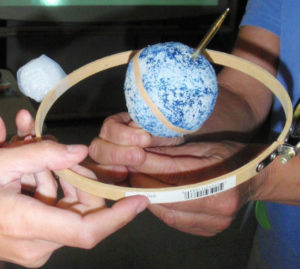
In this hybrid online and in-person 2-day workshop for upper elementary educators, participants dove into an exploration of our solar system, and the Earth’s place in the universe – through the lens of STEAM (Science, Technology, Engineering, Art and Math).
The workshop began in the virtual platform, using images from the James Webb Space Telescope and a video rendering of the scale of our universe as our inspiration – recognizing that all of the fields of STEAM went into the generation of these images. Through case study readings and discussion, we learned about authentic art integration in the classroom, and educators prepared to bring these ideas into their classroom. Educators then put on their “student hats” to dissect images of planetary bodies and understand the geological processes at work – using the principles of art to aid in our understanding. Back in “teacher hat”, an exploration of the MA Arts Curriculum Framework helped educators look for links to their curriculum.
During our in-person day at the Springfield Museums, educators continued our work connecting the arts and our exploration of the solar system through participating in a “living orrery”, led by our partner from the Beneski Museum at Amherst College. Educators experienced a visit to the Springfield Museum’s Seymour Planetarium to help further our understanding of the sun, earth, moon system and planetary motion – and brainstorm field trip experiences for their students.
Next, a discussion of the levels of inquiry and strategies to increase student independence in inquiry were followed by a student-hat Moon crater investigation – where the principles of art were again applied in communicating data about our investigation results. To wrap up our day, we were guided through using the Springfield Museums’ rooftop and portable telescopes – seeing the planetary bodies we’d been studying with our own eyes!
Our program returned to the virtual space to discuss different forms of assessment in the STEAM classroom – evaluating both art and science content. As our final student hat assessment, educators used the principles of art to create their own planetary art, with their colleagues gathering evidence to interpret the geological processes seen in their art!
This course was FREE for eligible MA educators through MA DESE’s Accelerating Science: Open Access Professional Learning Courses.
Arrange for this workshop for your school or school district:
Contact the Wade Institute at 617-328-1515 or wadeinstitute@wadeinstitutema.org.
This course was offered as part of Accelerating Science: Open Access Professional Learning Courses for Massachusetts educators. Eligible Massachusetts educators were able to take this course for free with a $150 stipend. Learn more about OAPL by visiting our OAPL page.
A Focus Workshop for Grades 3-5 Educators
An Approved Course for MA DESE’s Accelerating Science: Open Access Professional Learning
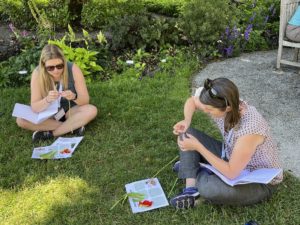 The Focus Workshop, Building the Storyline, was built to help teacher participants deepen their understanding of the storyline approach to phenomena teaching while also gaining the scientific content knowledge to create and teach a unit. Over the course of two onsite days, participants integrated phenomena-based pedagogy, the Science and Engineering Practices (SEPs), work with garden educators at partner location the New England Botanic Garden at Tower Hill, and the application of teaching and learning about plant life cycles.
The Focus Workshop, Building the Storyline, was built to help teacher participants deepen their understanding of the storyline approach to phenomena teaching while also gaining the scientific content knowledge to create and teach a unit. Over the course of two onsite days, participants integrated phenomena-based pedagogy, the Science and Engineering Practices (SEPs), work with garden educators at partner location the New England Botanic Garden at Tower Hill, and the application of teaching and learning about plant life cycles.
Teachers experienced an anchoring phenomenon routine and were guided through the planning and outline of their own unit, while instructors modeled how to set norms in a DEI-centered classroom, including respect, equity, and commitment to community. Participants then made a nature journal with recycled materials with support from the Botanic Garden education team.
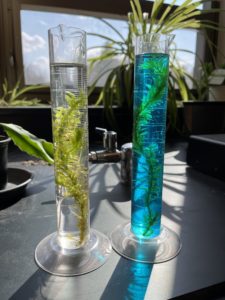 Participants engaged in many experiences about plant life cycles and basic plant needs as a learner, including botanical sketching, flower dissection, and a “bean in a bag” investigation. Participants conducted another inquiry investigation to explore inherited vs. environmental traits and plant adaptations in a variety of environments. Afterwards, instructors guided them through a group discussion in which they’ll put together the pieces of what they’ve learned throughout the unit and how to use the storyline approach in their own education setting. Teachers concluded with a project to create their own storyline unit, including anchoring and investigative phenomena around science content learning in the workshop.
Participants engaged in many experiences about plant life cycles and basic plant needs as a learner, including botanical sketching, flower dissection, and a “bean in a bag” investigation. Participants conducted another inquiry investigation to explore inherited vs. environmental traits and plant adaptations in a variety of environments. Afterwards, instructors guided them through a group discussion in which they’ll put together the pieces of what they’ve learned throughout the unit and how to use the storyline approach in their own education setting. Teachers concluded with a project to create their own storyline unit, including anchoring and investigative phenomena around science content learning in the workshop.
This course was FREE for eligible MA educators through MA DESE’s Accelerating Science: Open Access Professional Learning Courses.
Arrange for this workshop for your school or school district:
Contact the Wade Institute at 617-328-1515 or wadeinstitute@wadeinstitutema.org.
This course was offered as part of Accelerating Science: Open Access Professional Learning Courses for Massachusetts educators. Eligible Massachusetts educators were able to take this course for free with $150 substitute pay.
A Focus Workshop for Grades 9-12 Educators
An Approved Course for MA DESE’s Accelerating Science: Open Access Professional Learning
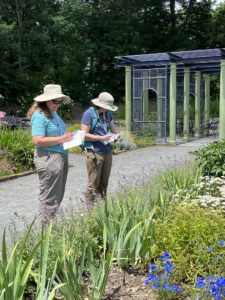 Explore how to use storyline routines and anchoring phenomena to shift your curriculum to student-centered science learning as you explore the relationship between humans and the natural environment. In this workshop, you’ll follow a storyline unit focused on sustainability, management of natural resources, ecosystems health, design solutions, and more. You’ll engage in a few lessons from the unit as a learner, including the anchoring phenomenon routine and student-driven inquiry investigations, then reflect on those experiences as a teacher. During the workshop, you will learn how to construct a storyline unit, incorporate relevant phenomena, and utilize best practices for DEI in the STEM classroom, including establishing classroom norms and processes that value all student resources. You will leave the program with an outline of a storyline unit, inquiry investigations to use in your classroom, and resources for developing your own storyline unit using culturally relevant phenomena.
Explore how to use storyline routines and anchoring phenomena to shift your curriculum to student-centered science learning as you explore the relationship between humans and the natural environment. In this workshop, you’ll follow a storyline unit focused on sustainability, management of natural resources, ecosystems health, design solutions, and more. You’ll engage in a few lessons from the unit as a learner, including the anchoring phenomenon routine and student-driven inquiry investigations, then reflect on those experiences as a teacher. During the workshop, you will learn how to construct a storyline unit, incorporate relevant phenomena, and utilize best practices for DEI in the STEM classroom, including establishing classroom norms and processes that value all student resources. You will leave the program with an outline of a storyline unit, inquiry investigations to use in your classroom, and resources for developing your own storyline unit using culturally relevant phenomena.
Using the storyline approach we will:
- Explore an anchoring phenomenon that sparks wonder at the start of the unit
- Identify phenomena relevant to your local community
- Demonstrate the importance of biodiversity in an ecosystem
- Evaluate competing design solutions for minimizing impacts to the natural environment
- Observe the relationship between humans and nature in the Blackstone River Valley
- Participate in place-based learning experiences
- Complete a culminating activity for the unit
This course was FREE for eligible MA educators through MA DESE’s Accelerating Science: Open Access Professional Learning Courses.
Arrange for this workshop for your school or school district:
Contact the Wade Institute at 617-328-1515 or wadeinstitute@wadeinstitutema.org.
This course was offered as part of Accelerating Science: Open Access Professional Learning Courses for Massachusetts educators. Eligible Massachusetts educators were able to take this course for free with $150 substitute pay. Learn more about OAPL by visiting our OAPL page.
A Focus Workshop for Grades 6-12 Educators
An Approved Course for MA DESE’s Accelerating Science: Open Access Professional Learning
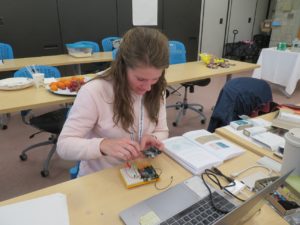
In this two-day workshop for 6-12 educators, we explored coding and engineering design concepts through fun, engaging, hands-on projects using the Arduino Electronics Platform.
The program started with an introduction to the Science and Engineering practices (SEPs), and an exploration of the progressions students make in the SEPs as they move from kindergarten through high school. With this foundation, participants moved into an activity centered on using phenomena in problem-based learning – to build a prototype lighthouse that would support an Arduino breadboard! In the first day of the program, educators learned about circuits, circuit diagrams and coding in preparation for completing a series of challenges using the Arduino sensors, including a Love-o-Meter and a Mood Cue.
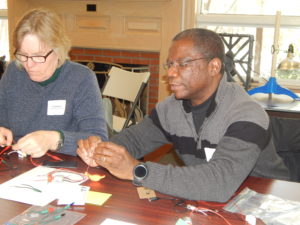 During the second day of the program, educators blended Tinker CAD Circuits into their Arduino sensors projects, as a tool for designing prior to building – and worked on Motorized Pinwheels and a Light Theremin. Problem solving was also featured, with teachers presented with a Broken Traffic Light in Tinker CAD which they then fixed and built with their Arduino sensors. Teachers were tasked with producing a standards based lesson plan using Arduinos in their classroom. The lessons were shared among participants to provide educators with a suite of lessons as they completed the workshop. Educators also left the program with an Arduino Sensors kit to use in their classrooms.
During the second day of the program, educators blended Tinker CAD Circuits into their Arduino sensors projects, as a tool for designing prior to building – and worked on Motorized Pinwheels and a Light Theremin. Problem solving was also featured, with teachers presented with a Broken Traffic Light in Tinker CAD which they then fixed and built with their Arduino sensors. Teachers were tasked with producing a standards based lesson plan using Arduinos in their classroom. The lessons were shared among participants to provide educators with a suite of lessons as they completed the workshop. Educators also left the program with an Arduino Sensors kit to use in their classrooms.
Arrange for this workshop for your school or school district:
Contact the Wade Institute at 617-328-1515 or wadeinstitute@wadeinstitutema.org.
This course was offered as part of Accelerating Science: Open Access Professional Learning Courses for Massachusetts educators. Eligible Massachusetts educators were able to take this course for free with a $450 stipend. Learn more about OAPL by visiting our OAPL page.
Watershed Science and Engineering in the Berkshires
A 5-Day Summer Professional Development Institute for Grades 6-12 Educators
An Approved Course for MA DESE’s Accelerating Science: Open Access Professional Learning
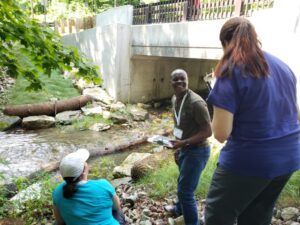 During this weeklong Institute for 6-12 educators, participants spent a week in the Berkshires collaborating with local scientists, engineers, conservation organizations and higher education faculty to explore how engineering supports natural systems and habitats. They explored methods and resources to bring this locally relevant science to their students and help them recognize the range of career opportunities that engineering can offer.
During this weeklong Institute for 6-12 educators, participants spent a week in the Berkshires collaborating with local scientists, engineers, conservation organizations and higher education faculty to explore how engineering supports natural systems and habitats. They explored methods and resources to bring this locally relevant science to their students and help them recognize the range of career opportunities that engineering can offer.
Our home base for the week was the Berkshire Science Commons at Berkshire Community College (BCC) – an exciting new resource for teachers in the Berkshire Region, where the community can collaborate with BCC faculty and staff and access amazing science and engineering tools and resources. Our partner at the Berkshire Science Commons helped introduced us to the engineering design process through a Tinker CAD design project, and set the stage for our Institutes’ engineering design challenges.
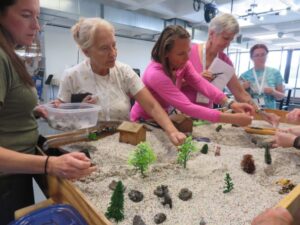 Our week continued in the field with partners from The Berkshire Environmental Action Team and the Berkshire Community College Science Department, and the City of Pittsfield Engineering Department, who brought us out into the local ecosystems as we explored local rivers and streams. With our partners we worked to understand first-hand how important watersheds are, to investigate methods in use to protect them and to understand how environmental needs and urban planning needs can develop together. We applied the engineering strategies we observed in the field to a stream table at the Berkshire Science Commons, working to minimize erosion and runoff.
Our week continued in the field with partners from The Berkshire Environmental Action Team and the Berkshire Community College Science Department, and the City of Pittsfield Engineering Department, who brought us out into the local ecosystems as we explored local rivers and streams. With our partners we worked to understand first-hand how important watersheds are, to investigate methods in use to protect them and to understand how environmental needs and urban planning needs can develop together. We applied the engineering strategies we observed in the field to a stream table at the Berkshire Science Commons, working to minimize erosion and runoff.
While at our field locations we also learned state water quality monitoring protocols, conducted these tests at the Berkshire Science Commons, and explored and practiced ways to scale this testing to be used in the classroom. We also toured the local wastewater treatment plant, learning first-hand how engineering and natural processes are used in tandem to return fresh water to our ecosystem.
Our week concluded with a return to our engineering design challenges, including the creation and testing of mini wastewater treatment plants. Throughout the week educators gained an understanding of how phenomena-based learning, storyline teaching, and inquiry investigations could help their students meet engineering and science standards.
This course was FREE for eligible MA educators through MA DESE’s Accelerating Science: Open Access Professional Learning Courses.
This course was offered as part of Accelerating Science: Open Access Professional Learning Courses for Massachusetts educators. Eligible Massachusetts educators were able to take this course for free with a $450 stipend. Learn more about OAPL by visiting our OAPL page.
A Summer Professional Development Institute for Grades 3-8 Educators
An Approved Course for MA DESE’s Accelerating Science: Open Access Professional Learning
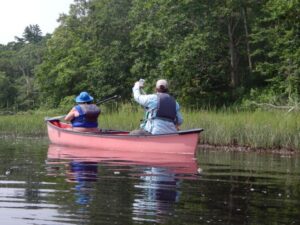 Local ecosystems hold an abundance of knowledge, data, and interconnections for scientists and educators to explore. During this institute, participants experienced real-life connections between marine science, technology, engineering, and math as they explored the phenomena of migration of whales, sharks, turtles, butterflies, and birds. Participants deepened their understanding of science and engineering concepts as they learned about and toured research facilities of the three partner organizations: Manomet, Inc., Lloyd Center for the Environment, and the Atlantic White Shark Conservancy.
Local ecosystems hold an abundance of knowledge, data, and interconnections for scientists and educators to explore. During this institute, participants experienced real-life connections between marine science, technology, engineering, and math as they explored the phenomena of migration of whales, sharks, turtles, butterflies, and birds. Participants deepened their understanding of science and engineering concepts as they learned about and toured research facilities of the three partner organizations: Manomet, Inc., Lloyd Center for the Environment, and the Atlantic White Shark Conservancy.
The Institute began at Manomet Inc., exploring the milkweed on site and the communities they support, including Monarch butterflies. Participants experienced Manomet’s environmental stewardship work while measuring migration with both low- and high-tech bird tracking. They continued on their migration exploration with the Atlantic White Shark Conservancy. Teachers explored tools used to track migrating species and worked with real time data to gain an understanding of the importance of both technologically collected data as well as historical data collected by whalers and fisherman. Teachers also participated as students in an anchoring phenomenon routine, for which they generated a T-chart of notices and wonders, an initial model, and questions for a driving question board.
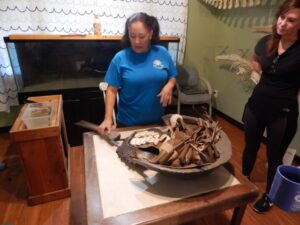 The week continued at the Lloyd Center for the Environment where participants were excited to release a Diamondback Terrapin to the Slocums River waters during a unique and rewarding paddling experience. Additionally, teachers on land were participating in a bioblitz activity by collecting as many photos of different species as possible to record on iNaturalist. The group then returned to Manomet Inc. where they participated in more investigations about breeding birds and shorebird migration.
The week continued at the Lloyd Center for the Environment where participants were excited to release a Diamondback Terrapin to the Slocums River waters during a unique and rewarding paddling experience. Additionally, teachers on land were participating in a bioblitz activity by collecting as many photos of different species as possible to record on iNaturalist. The group then returned to Manomet Inc. where they participated in more investigations about breeding birds and shorebird migration.
Through these experiences and a variety of leveled inquiry investigations, participants were able to gain
further understanding of phenomena-based teaching and inquiry-based lessons that strengthen their teaching of the Science and Engineering Practices. Throughout the week, teachers were encouraged to think about ways they can incorporate local ecosystems, marine life, and/or migration phenomena into their classroom practice.
This course was FREE for eligible MA educators through MA DESE’s Accelerating Science: Open Access Professional Learning Courses.
This course was offered as part of Accelerating Science: Open Access Professional Learning Courses for Massachusetts educators. Eligible Massachusetts educators were able to take this course for free with a $300 stipend.
Building the Storyline Using Culturally Relevant Phenomena in Your Classroom
for Grades 6-12 Educators
Saturdays, January 27th and February 3rd, 2024 (8:30 AM – 3:30 PM ET)
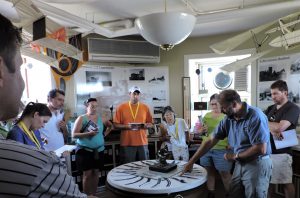 Explore how to use storyline routines and anchoring phenomena to shift your curriculum to student-centered science learning as you explore the relationship between humans, climate, and the natural environment. In this workshop, you will explore examples of how real-world phenomena can be used to investigate the effects of climate on the ecosystem. Using problem-based issues, you will engage in investigations from the unit as a learner, including the anchoring phenomenon routine and student-driven inquiry investigations, then reflect on those experiences as a teacher. During the workshop, you will learn how to construct a storyline unit, incorporate relevant phenomena, and utilize best practices for DEI in the STEM classroom, including establishing classroom norms and processes that value all student resources. You will leave the program with an outline of a storyline unit, inquiry investigations to use in your classroom, and resources for developing your own storyline unit using culturally relevant phenomena.
Explore how to use storyline routines and anchoring phenomena to shift your curriculum to student-centered science learning as you explore the relationship between humans, climate, and the natural environment. In this workshop, you will explore examples of how real-world phenomena can be used to investigate the effects of climate on the ecosystem. Using problem-based issues, you will engage in investigations from the unit as a learner, including the anchoring phenomenon routine and student-driven inquiry investigations, then reflect on those experiences as a teacher. During the workshop, you will learn how to construct a storyline unit, incorporate relevant phenomena, and utilize best practices for DEI in the STEM classroom, including establishing classroom norms and processes that value all student resources. You will leave the program with an outline of a storyline unit, inquiry investigations to use in your classroom, and resources for developing your own storyline unit using culturally relevant phenomena.
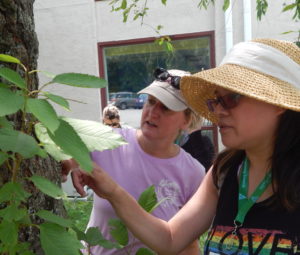
Using the storyline approach we will:
- Explore an anchoring phenomenon that sparks wonder at the start of the unit
- Identify phenomena relevant to your local community
- Recognize the importance of the effects of climate on the ecosystem
- Evaluate the impacts of changes in the environment on the plant life
- Observe the relationship between humans and nature on Blue Hill
- Participate in place-based learning experiences
- Complete a culminating activity for the unit
Registration Information
Collaborating Partner: Blue Hill Observatory & Science Center
Dates: Saturdays, January 27th and February 3rd, 2024 (8:30 AM – 3:30 PM ET)
Location: Blue Hill Observatory & Science Center, Milton, MA
Cost: FREE for eligible MA educators that qualify through MA DESE’s OAPL program and includes $300 stipend. Registration cost is $250 per educator from non-qualifying schools.
PDPs and Optional Graduate Credit: 14 PDPs available without graduate credit. 22.5 PDPs and 1 graduate credit available from Cambridge College for $75. Graduate credit requires additional work.
This course was offered as part of Accelerating Science: Open Access Professional Learning Courses for Massachusetts educators. Eligible Massachusetts educators were able to take this course for free with $300 substitute pay.
Engaging Students in the Engineering Design Process Using Sensors
for Grades 6-12 Educators
Thursday, March 14th and Friday, March 15th, 2024 (8:30 AM – 3:30 PM ET)
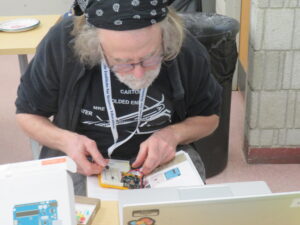 Explore coding and electronics through fun, engaging, hands-on projects using the Arduino Open Source Electronics Platform. Engaging Students in the Engineering Design Process Using Sensors is designed for middle and high school teachers who are interested in incorporating digital technology and computational thinking into engineering design portions of their curriculum, but who lack the skills or confidence to get started on their own.
Explore coding and electronics through fun, engaging, hands-on projects using the Arduino Open Source Electronics Platform. Engaging Students in the Engineering Design Process Using Sensors is designed for middle and high school teachers who are interested in incorporating digital technology and computational thinking into engineering design portions of their curriculum, but who lack the skills or confidence to get started on their own.
Participants will engage in a variety of investigations that explore using Arduino Sensors. You will build a control panel for a Starship, create a Love-O-Meter, design a Color Mixing Lamp, experiment with a Motorized Pinwheel and make a Light 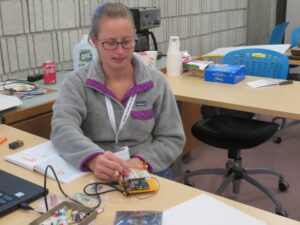 Theremin (a musical instrument you play by waving your hands). Then create another device of your own choosing with guidance from our instructors. We will model how to engage students with hands-on investigations that develop an understanding of the engineer design process, including using engineering design drawings and bread boards, as they explore the concepts of current, voltage, and digital logic as well as the fundamentals of programming. Experience how to guide student driven learning through critical thinking and collaborative learning activities as your students work to solve problems. We will share how the technology is used in real world applications in a wide range of industries that affect our lives as well as how this technology is used in scientific studies.
Theremin (a musical instrument you play by waving your hands). Then create another device of your own choosing with guidance from our instructors. We will model how to engage students with hands-on investigations that develop an understanding of the engineer design process, including using engineering design drawings and bread boards, as they explore the concepts of current, voltage, and digital logic as well as the fundamentals of programming. Experience how to guide student driven learning through critical thinking and collaborative learning activities as your students work to solve problems. We will share how the technology is used in real world applications in a wide range of industries that affect our lives as well as how this technology is used in scientific studies.
As the final component of the workshop, select a design challenge you would like to incorporate into your curriculum, identify an anchoring phenomena for the challenge and brainstorm with your peers to identify opportunities for students to embed sensors into their projects. Leave the workshop with an Arduino kit to start using these materials and investigations in your classroom.
Registration Information
Dates: Thursday, March 14th and Friday, March 15th, 2024 (8:30 AM – 3:30 PM ET)
Location: Springfield Museum, Springfield, MA
Cost: FREE for eligible MA educators that qualify through MA DESE’s OAPL program and includes $300 substitute pay. Registration cost is $300 per educator from non-qualifying schools.
PDPs and Optional Graduate Credit: 14 PDPs available without graduate credit. 22.5 PDPs and 1 graduate credit available from Cambridge College for $75. Graduate credit requires additional work.
This course was offered as part of Accelerating Science: Open Access Professional Learning Courses for Massachusetts educators. Eligible Massachusetts educators were able to take this course for free with $300 substitute pay.
Exploring Instructional Strategies That Promote
Student Sensemaking and Student Discourse
for Grades 9-12 Educators
Monday, May 6th and Tuesday, May 7th 2024 (8:30 AM – 3:30 PM ET)
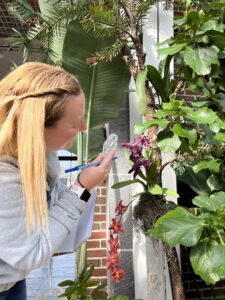
In this 2-day in-person workshop, teachers will be guided in the use of instructional strategies central to storyline teaching, including phenomena-based instruction, using a Driving Question Board to promote student questions and ownership, and student discussion. Teachers will be able to think critically about phenomena-based instruction and consider its power for promoting students’ deep understanding of Disciplinary Core Ideas, developing their skills in using the Science and Engineering Practices, and strengthening their ability to apply the Crosscutting Concepts of science and engineering.
Using recently released OpenSciEd High School Biology curriculum as a foundation, the program will introduce the use of storylines as a tool that fosters students’ sensemaking. We will work with an anchoring phenomena, engaging in inquiry-based investigations related to evolution and genetic diversity as students would to help understand this phenomena. In collaboration with our partners from the USDA’s Springfield Urban Field Station we will explore local related phenomena. Model building and discussion are important components of storyline teaching, and we will explore both of these strategies as tools to promote student learning. Throughout this professional learning program, teachers will have opportunities to engage with their peers to discuss and plan for implementation of their learning in their own classrooms.
Focus questions for the content of this Professional Learning Experience will include:
- What does phenomena-based instruction look like in the classroom?
- How does teaching with storylines differ from what I already do?
- What features of phenomena-based instruction and storylines can improve student learning?
- How do phenomena-based instruction and storylines support equity in my classroom?
In this program you will:
- Explore an anchoring phenomenon as a driver for a unit
- Identify phenomena relevant to your local community
- Participate in place-based learning experiences related to urban bird and tree populations
- Practice productive talk moves to support classroom discussions
- Research the role of urbanization in plant and animal evolution
- Explore the impact of habitat fragmentation on genetic diversity
- Evaluate urban planning designs that support human and non-human populations
 Registration Information
Registration Information
Collaborating Partner: USDA Forest Service Springfield Urban Field Station
Dates: Monday, May 6th and Tuesday, May 7th 2024 (8:30 AM – 3:30 PM ET)
Location: Forest Park, Springfield, MA
Cost: FREE for eligible MA educators that qualify through MA DESE’s OAPL program and includes $300 substitute pay. Registration cost is $250 per educator from non-qualifying schools.
PDPs and Optional Graduate Credit: 14 PDPs available without graduate credit. 22.5 PDPs and 1 graduate credit available from Cambridge College for $75. Graduate credit requires additional work.
This course was offered as part of Accelerating Science: Open Access Professional Learning Courses for Massachusetts educators. Eligible Massachusetts educators were able to take this course for free with a $300 stipend.
Engaging Students in the Engineering Design Process Using Sensors: Level 2
for Grades 6-12 Educators
Wednesday, June 26th and Thursday, June 27th, 2024 (8:30 AM – 3:30 PM ET)
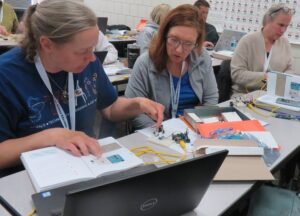 Join us for an advanced workshop focused on reverse engineering and problem based learning. Build and program a robot capable of carrying a variety of data collecting sensors. Explore what the engineering practices look like in the classroom as you experience inquiry investigations and phenomena-based learning. Receive an advanced Arduino kit to take back to your classroom. Included in the kit is an autonomous INR robot, multiple sensors and camera module. You will design and create working autonomous robot prototypes. Reverse engineering will be used to identify improvements you want to design. Improvements can include mechanical, programmatic, and/or sensor design.
Join us for an advanced workshop focused on reverse engineering and problem based learning. Build and program a robot capable of carrying a variety of data collecting sensors. Explore what the engineering practices look like in the classroom as you experience inquiry investigations and phenomena-based learning. Receive an advanced Arduino kit to take back to your classroom. Included in the kit is an autonomous INR robot, multiple sensors and camera module. You will design and create working autonomous robot prototypes. Reverse engineering will be used to identify improvements you want to design. Improvements can include mechanical, programmatic, and/or sensor design.
For those schools who have restricted cell phone use, we have you covered! We will be giving you an infrared robot that has its own controller. No cell phones needed!
- Plan out and program a robot using either Arduino C or Block Programming
- Incorporate sensors into the robot design
- Use sensor data to create autonomous robots
- Gain a better understanding of engineering design concepts
- Investigate strategies for problem-based learning
- Identify and solve a community problem using robotics
Participants will receive an Arduino kit to take back to their classroom. We recommend taking the first level sensor workshop prior to enrolling in this workshop.
 Registration Information
Registration Information
Dates: Wednesday, June 26th and Thursday, June 27th, 2024 (8:30 AM – 3:30 PM ET)
Location: Massasoit Community College, Canton Campus, Canton, MA
Cost: FREE for eligible MA educators that qualify through MA DESE’s OAPL program and includes a $300 stipend. Registration cost is $350 per educator from non-qualifying schools.
PDPs and Optional Graduate Credit: 14 PDPs available without graduate credit. 22.5 PDPs and 1 graduate credit available from Cambridge College for $75. Graduate credit requires additional work.

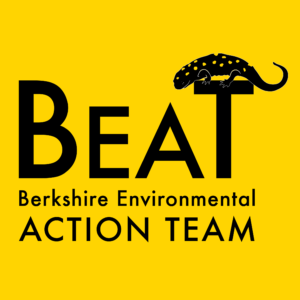



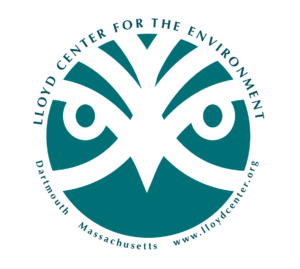

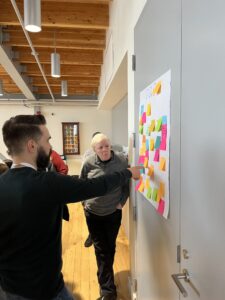 Registration Information
Registration Information